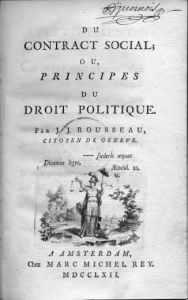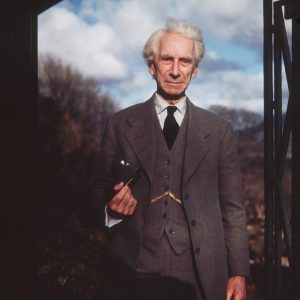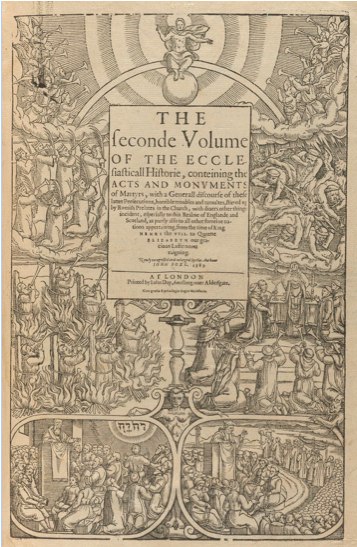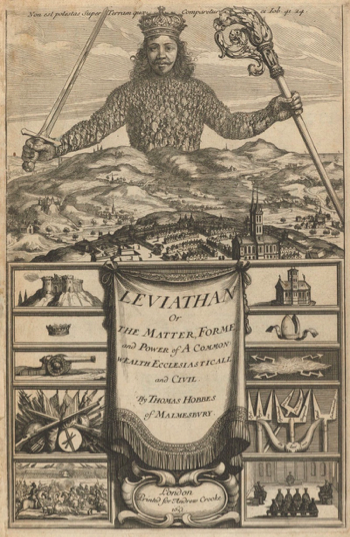
Edward Said’s Reflections on Exile (2000), the collection in which “The Politics of Knowledge” (1991) appears.
HumCore inaugurated the cycle’s foray into empire and its ruins with Edward W. Said’s “The Politics of Knowledge”—with good reason. Said emphasizes the role that binary oppositions play in constituting politics of power-knowledge vis-à-vis the epistemology of imperialism, including nationalism and the discourse of orientalism.[1]
Correlatively, HumCore’s examinations have highlighted structural inequities generated by binaries and concatenations thereof—including order/chaos, man/woman, civilization/barbarism, white/black, freedom/enslavement, enlightenment/self-incurred-minority, and so on—to reject and resist unjust hierarchies.
The role that binary oppositions play in generating unjust hierarchies has led some humanists to believe that we should reject and resist all binary oppositions or “binarism” generally, depending on how one defines that notion.[2] Yet, from the fact that specific binaries are iniquitous or generate unjust hierarchies, it does not follow—without further argument—that all binary oppositions are problematic. Nor does it follow that binary oppositions are inadequate to the task of characterizing personal and political realities in conceptual terms. Nor does it follow that all hierarchies generated by binary oppositions are unjust.
This blog post, qua attempt, argues that there is nothing inherently wrong with binary oppositions. Only some are detrimental, whereas others are beneficial—and, indeed, can facilitate the pursuit of justice for all, without exception. The spectra of difference, diversity, and multiplicity that many humanists value can find expression in conceptual systems grounded by clear, precise, and subtle distinctions, including binary oppositions of the this/that kind.[3] Consequently, we should reject and resist unclear, imprecise, and simplistic binary oppositions, especially those involved in iniquitous hierarchies; but we should not reject and resist all binary oppositions.
(There is a foundational and extraordinarily consequential philosophical question at issue here. It concerns whether an “analytic logic of contraries” enables us to adequately represent the complexity of personal and political realities. Some humanists think not and maintain that we should employ a “dialectical logic of narratives” to help account for the personal and political. This post does not attempt to settle this contentious issue, but raises it to underscore its significance.[4])
A binary opposition is binary, in that it is a relation involving two items. The meaning of “item” is intentionally open-ended. An item might be an object, process, name, description, etc., depending on relevant theoretical and practical interests.
A binary opposition is an opposition, moreover, in that it involves difference. The meaning of “difference,” too, is intentionally open-ended. A difference might be objectual, categorial, referential, descriptive, etc., depending on relevant theoretical and practical interests.
 Binary oppositions both include and exclude, though humanists tend to accentuate the latter operation. Consider the toy model of apples and oranges. Binary oppositions such as apples/oranges include, in that one “side” of the opposition constitutes one item: the item specified by the first term, e.g., “apples.” The other “side” of an opposition constitutes another item: the item specified by the second term, e.g., “oranges.” The binary opposition apples/oranges, accordingly, purports to represent all apples, on one side, and all oranges, on the other. Thereby, we can compare apples to oranges, despite idiomatic implications of the everyday expression.
Binary oppositions both include and exclude, though humanists tend to accentuate the latter operation. Consider the toy model of apples and oranges. Binary oppositions such as apples/oranges include, in that one “side” of the opposition constitutes one item: the item specified by the first term, e.g., “apples.” The other “side” of an opposition constitutes another item: the item specified by the second term, e.g., “oranges.” The binary opposition apples/oranges, accordingly, purports to represent all apples, on one side, and all oranges, on the other. Thereby, we can compare apples to oranges, despite idiomatic implications of the everyday expression.
Such inclusions on each “side” of a binary opposition immediately exclude other items. The category of apples excludes oranges; the category of oranges excludes apples: one entity cannot be both an apple and an orange. The opposition apples/oranges, moreover, facilitates supplementary distinctions pertaining to color, taste, etc. Yet, apples and oranges are similar in some respects: instances of each kind are fruit, have color, are spatiotemporally located, and so on. Hence one can invoke additional binary oppositions, such as fruit/vegetable and tart/sweet, to help limn reality and the constitution thereof.
Note that, unlike the mutually exclusive opposition fruit/vegetable, tart/sweet is not mutually exclusive: some foods are both tart and sweet—a particular apple or orange, for instance. A binary opposition, therefore, does not automatically entail the total exclusion of the items that it represents. Only some binary oppositions purport to be mutually exclusive and exhaustive: spatiotemporal-entity/non-spatiotemporal-entity, for instance.
Things become more complicated and contentious when we move away from toy models and consider foci of humanistic inquiry. Even so, binary oppositions can be explanatory and personally-politically useful, if they (and their parsings) are clear, precise, and subtle. To see how (and why), let us consider a fresh example before we examine binaries already treated in the course.
Consider the phenomenological distinction between the object and meaning of your present experience. The objects of phenomenal perception as your experience unfolds here, now, are the words of this sentence; and your experience “tracks” these (!) perceptual objects as you grasp their individual and collective meanings. The words on this page are not identical to the meanings that they express. Similarly, the objects of your experience are not identical to the meanings in virtue of which your experience is significant—not only for you, but also for others.
This raises a question: Does distinguishing between the objects and meanings of experience enhance language’s explanatory power?
Having postulated an opposition between experience’s objects and meanings, the object/meaning binary enables us to explain how one and the same object can figure into experiences with different meanings. When one is sufficiently hydrated, a glass of water presents itself as an object of potential action (phenomenally speaking): one could drink, or… When one is extremely parched, in contrast, the same glass may present itself as an object of necessary action (phenomenally speaking): one must drink, or…[5]
Giving one and the same object as a gift, to take another example, can mean radically different things in different contexts: a tactful expression of generosity in some, a tactless faux pas in others. The same piece of art, moreover, can inspire or infuriate; the same lecture can illuminate or obfuscate; the same gesture can supplicate or remonstrate. In each case, the same object means (or signifies) differently, depending on contextual considerations.

“Which animals are most like each other? Rabbit and Duck,” originally appeared in Fliegende Blätter (October 23,1892)
A canonical example of this phenomenon is the duck-rabbit illusion, pictured above. While the sketched object of the duck-rabbit remains the same, experienced meaning fluctuates between <duck> and <rabbit> as attention shifts.
The objects of experience, therefore, can remain the same even as their meanings—the ways in which they present themselves—shift. This suggests that experience’s objects and meanings are formally distinct: they play structurally dissimilar, albeit complementary, roles in the constitution of experience.
(Note that the object/meaning opposition is not mutually exclusive. In humanistic inquiry, we often take up meanings as explicit objects of thought, without violating the structurally distinct roles that objects and meanings play in the constitution of experience.)
Concordantly, the following meanings present the same object: <Morning Star>, <Evening Star>, <Venus>, <second planet from the sun>. The meaning or mode of presentation of the planet Venus differs in each case. When navigating, “Evening Star” may be more informative than “Venus”; whereas, when memorizing the order of the planets, “second planet from the sun” may be more informative than alternative meanings. The fact that the phrases “Morning Star” and “Evening Star” co-refer to the same celestial body, moreover, represents an epistemic achievement. We did not always know, but discovered, that the Morning Star is the Evening Star; or, more precisely, that the phrases “Morning Star” and “Evening Star” refer to the same celestial body.
So far, the object/meaning opposition seems well-suited for enhancing the clarity, precision, and subtly of our expressive capacities.
The object/meaning binary also enables us to explain how different objects can be presented via one and the same meaning. Take the meaning, <compassion>, for example. One can manifest compassion for a multitude of “objects,” in the formal sense (which includes fellow human subjects): oneself, one’s mother, one’s father, one’s partner, one’s friend, one’s friends, one’s acquaintance, one’s acquaintances, one’s “enemy,” one’s “enemies,” one’s institutions, one’s block, one’s city, one’s county, one’s state, one’s country, one’s continent, one’s world…
All of these objects are accommodatable by the meaning, <compassion>; for that meaning can play a preeminent role in presenting whatever manifests in the flow of experience. Compassion, in other words, does not have one and only one “proper” object, but can present an astoundingly diverse range of objects. Compassion can literally be the mode of presentation—the meaning—of all objects of experience, in this sense.
These examples help illustrate the way in which the binary opposition, object/meaning, is useful for explanatorily and (potentially) personal-political purposes. The opposition does not do violence to or reduce the complexity of experience, but enables us to express it in clear, precise, and subtle terms.[6]
One might object that the object/meaning opposition is not binary, but presupposes a range of other items, such as the background, phenomenal character, act-character, and intersubjective constitution of experience.
This objection presupposes the explanatory efficacy of what it criticizes: binary oppositions between object/background, meaning/background, object/phenomenal-character, meaning/phenomenal-character, object/act-character, meaning/act-character, object/intersubjective-constitution, meaning/intersubjective-constitution, and so on. The important point is that, since our central thesis concerns the explanatory efficacy of some binary oppositions, introducing additional oppositions does not threaten, but may even strengthen, the argument for that thesis.
Unfortunately, unclear, imprecise, and simplistic binaries (and their parsings) circulate widely in contemporary culture. They are always ready-to-hand—which, fortunately, entails that their critique is always present-at-hand.
![]() People who have not thought critically about sex and gender, for example, might use those terms interchangeably, as if the concepts were neither distinguishable, nor worth distinguishing, let alone parsing in ways that facilitate difference.[7] If one were to parse gender into two simplistic and mutually exclusive items, such as man/woman, then that parsing—though not necessarily the concept of gender itself—would be worth rejecting and resisting.[8] The binary, as parsed, dichotomizes people into only two categories, thereby doing violence to them and their complexity.[9]
People who have not thought critically about sex and gender, for example, might use those terms interchangeably, as if the concepts were neither distinguishable, nor worth distinguishing, let alone parsing in ways that facilitate difference.[7] If one were to parse gender into two simplistic and mutually exclusive items, such as man/woman, then that parsing—though not necessarily the concept of gender itself—would be worth rejecting and resisting.[8] The binary, as parsed, dichotomizes people into only two categories, thereby doing violence to them and their complexity.[9]
But there are many ways to parse a binary opposition and the items that it involves. Some parsings not only allow for, but facilitate, difference, diversity, and multiplicity. This brings us back to the essay’s central thesis: From the fact that one, many, or even most binary oppositions are problematic, it does not follow that binaries are inherently anathema to conceptual articulations that facilitate difference and preserve radical multiplicity. Nor does it follow that binaries are inherently anathema to the pursuit of justice. Here, as elsewhere, the devil is in the detail.
Arguably, even the relatively fluid socio-cultural identities that we have encountered in HumCore, such as those exemplified by Zitkála-Šá, José Gabriel Túpac Amaru, and Martín Chambi, are adequately describable via binary oppositions, including the opposition relatively-stable/relatively-fluid—assuming relevant parsings are sufficiently nuanced and complex to preserve the multiplicities that they express. Indeed, one might deploy specific binaries to oppose (!) hierarchies that privilege certain categories and identities over others, or any category or identity over any other.
This brings us back to Said, who employs the exclusive-identity-politics/inclusive-worldliness binary to argue that identity politics is ultimately incapable of achieving what Aimé Césaire refers to as “a place for all at the Rendezvous of Victory.” For, while temporarily identifying as (say) Indian could play an instrumental role in resisting the British Empire (à la Vinayak Savarkar) or modern civilization (à la Mohandas Gandhi), Said argues that any nationalist identification ultimately participates in, and thereby strengthens, the logic of imperialism, founded as it is on fundamentally excluding, dividing, and conquering people. Thus, Said’s argument employs a clear, precise, and subtle binary opposition to reject and resist the unclear, imprecise, and simplistic binary oppositions that ground the epistemology of imperialism, including nationalism and the discourse of orientalism.

President Bush declares the end of major combat in Iraq as he speaks aboard the aircraft carrier USS Abraham Lincoln off the California coast (May 1, 2003 file photo). J. Scott Applewhite, AP Photo.
Many binary oppositions are anathema to the humanistic values of equality, equity, inclusivity, and compassion. When George W. Bush claimed that, “Every nation, in every region, now has a decision to make; either you are with us, or you are with the terrorists,” the with-us/with-the-terrorists opposition that drives Bush’s “reasoning” is unclear, imprecise, and simplistic: it asserts a false dichotomy. Problems of this kind are not only logical, but also personal and political. The with-us/with-the-terrorists binary suggests that one supports either the U. S. War in Iraq or terrorism—as if this categorization were informative, exhaustive, and adequate justification for impeaching anyone who opposed the war on moral grounds.
The difference between the exclusive-identity-politics/inclusive-worldliness opposition, on the one hand, and the with-us/with-the-terrorists opposition, on the other, helps demonstrate that “the difference that makes a difference,” if I may, concerns the clarity, precision, and subtly of relevant oppositions and their parsings, not binaries themselves.
Some humanists remain attached to the belief that rejecting and resisting inequitable hierarchies requires rejecting and resisting all binary oppositions or “binarism.” Ironically, this belief is not only unjustified, but self-undermining: it destructively interferes with our ability to defend difference, diversity, and multiplicity, whether one prefers an analytic logic of contraries or a dialectical logic of narrative developments.
Binary oppositions are meaningful in virtue of their relationships to other terms. All oppositions function within “larger” logics, including discourses of power-knowledge, which help shape their significance.
Having distinguished race from racism, for example, we can concatenate race/racism with another concept that helps explain their relation, while remaining distinct from each: racecraft. The oppositions between race/racism, race/racecraft, and racism/racecraft allow for the schematization: <racism + racecraft = race>. This conceptual schema allows us to articulate the way in which race, which might appear to be a natural-biological-physical category, is in fact a socio-political product of the discourse of racism, inextricably interwoven as it is with the machinations of racecraft.[10] Our ability to articulate this subtle point seems to presuppose there being relations of interdependence and contrariety (distinctness) between racism, racecraft, and race.
If there are possibilities for which a conceptual system fails to account, we may introduce additional or alternative oppositions, thereby adding clarity, precision, and subtly to our expressive resources. An unclear, imprecise, or simplistic opposition often calls for a more clear, precise, and subtle opposition (or set thereof).
Nuanced distinctions can facilitate more effective forms of resistance and manifest more encompassing forms of compassion. Some never recognize differences between the objects and meanings of experience; between sex and gender; between race and racism; between identity politics and worldliness; and so on. Once one does, however, it is as if reality shifts. A new world emerges, or can emerge, which fosters difference, diversity, and multiplicity as far as possible—far enough, perhaps, to create a place for all at the rendezvous of victory.[11]
Notes
[1] Edward W. Said, “The Politics of Knowledge,” in Reflections on Exile and Other Essays (Cambridge, MA: Harvard University Press, 2000), 372-85; “Introduction,” in Orientalism (New York: Vintage Books, 1979), 1-28.
[2] This is especially evident in scholarship influenced by dialectical logic, post-structuralism, and deconstruction. Gilles Deleuze and Félix Guattari, to invoke a paradigmatic example, claim that, “There is always something that flows or flees, that escapes the binary organizations, the resonance apparatus, and the overcoding machine: things that are attributed to a ‘change in values,’ the youth, women, the mad, etc.” (A Thousand Plateaus: Capitalism and Schizophrenia (Minneapolis: University of Minnesota Press, 1987), 216). Note, however, that Deleuze and Guattari also recognize a kind of “supple segmentarity,” whereby binaries result from multiplicities of n dimensions, as opposed to (!) “rigid segmentarity,” whereby binaries claim to be totalizing and self-sufficient (ibid., 212).
[3] More precisely, I would argue that clear, precise, and subtle binary oppositions help facilitate conceptual articulations of relative truths regarding phenomenal reality.
[4] Thanks to Ermanno Bencivenga for reminding me of this point. For a lucid explication of the distinction between analytic and dialectical logic, see Bencivenga’s Hegel’s Dialectical Logic (New York: Oxford University Press, 2000), 6-42.
[5] For details regarding relevant modalities, see David Woodruff Smith, “On Basic Modes of Being: Meta-metaphysical Reflections in Light of Whitehead, Husserl, Ingarden, Hintikka,” in Themes from Ontology, Mind and Logic, Part and Present: Essays in Honor of Peter Simons, Ed. Sandra Lapointe (Boston: Brill Rodopi, 2015), 217-42.
[6] Furthermore, as simple as it might seem, the object/meaning opposition helps ensure that, when we disagree about issues concerning the personal and political, the target of our disagreement is substantive, and not merely linguistic. Substantive disagreement, after all, concerns notions themselves, not the words we use to refer to those notions.
[7] Thanks to Rodrigo Lazo for accentuating this point.
[8] Thanks to Larisa Castillo for helping me clarify this point.
[9] Consider, again, Deleuze and Guattari: “[Sexuality] is badly explained by the binary organization of the sexes, and just as badly by a bisexual organization within each sex. Sexuality brings into play too great a diversity of conjugated becomings; these are like n sexes, an entire war machine through which love passes” (A Thousand Plateaus, 278).
[10] For details, see Barbara J. Fields and Karen E. Fields, “How Race is Conjured”: https://www.jacobinmag.com/2015/06/karen-barbara-fields-racecraft-dolezal-racism/
[11] In addition to the aforementioned, I am grateful to Tamara Beauchamp, Sharon Block, Christine Connell, Susan Morse, and Valentina Ricci for their candid comments and criticisms, even and especially where they disagreed.
 Dan Siakel received his bachelor’s degree (with honors) and first Master’s degree from the University of Chicago, then a Master’s degree and Ph.D. from UCI, all in the discipline of philosophy. His research focuses on issues in metaphysics, philosophy of mind, early modern philosophy, the history of 20th-century philosophy, and, more recently, Shambhala Buddhism and Meditation. Dan’s pedagogical interests have found expression in his capacities as a Senior Pedagogical Fellow for UCI’s Center for Engaged instruction and more recently as a Pedagogical Fellow for the Andrew W. Mellon Teaching Institute. He has previously shared his work with the HumCore Research Blog as part of the program’s Friday Forum series.
Dan Siakel received his bachelor’s degree (with honors) and first Master’s degree from the University of Chicago, then a Master’s degree and Ph.D. from UCI, all in the discipline of philosophy. His research focuses on issues in metaphysics, philosophy of mind, early modern philosophy, the history of 20th-century philosophy, and, more recently, Shambhala Buddhism and Meditation. Dan’s pedagogical interests have found expression in his capacities as a Senior Pedagogical Fellow for UCI’s Center for Engaged instruction and more recently as a Pedagogical Fellow for the Andrew W. Mellon Teaching Institute. He has previously shared his work with the HumCore Research Blog as part of the program’s Friday Forum series.







![Hans Ulrich Franck, Der Geharnischte Reiter [Knight in Armor] (1603-75). Etching.](https://sites.uci.edu/humcoreblog/files/2016/10/Screen-Shot-2016-10-26-at-12.36.32-PM.png)






